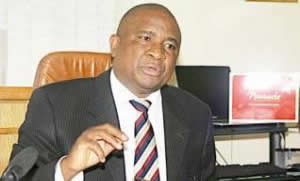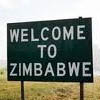Tekere: A personal memoir
man that some of his colleagues from the war became after independence. His one tragic lapse was that horrible incident in which he shot dead a white farmer in a raid which still rankles with many of us who knew him well.
He had a hell of a temper, which dogged him most of his life.
If he had been the misguided former “gandanga” or “comrade”, he would never have waged his twin campaigns against his party: on corruption and the one-party system.
I suspect that deep down, he knew that triumph in both instances would not come easy. But you knew he was in there for the long haul, prepared to pay the price in the attempt. He always put his money where his mouth was.
I knew Tekere from our first meeting in Mufakose in 1960, where we both lived, until we left to go our separate ways – he, eventually, to Mozambique and the war, and I to Zambia, then Northern Rhodesia, to continue a journalism career which itself was steeped in the struggle – and owed much to our friendship.
When we met for the first time after independence in 1980, it was at the shopping complex at Kamfinsa in Greendale, in what was still then Salisbury. He was driving a Jaguar. I was in a Peugeot 404 sedan with my children.
“They all look like you!” he exclaimed. Actually, not all of them did. But Tekere seemed to be genuinely fascinated, as if he found this coincidence uncanny. It was not entirely convincing.
I suspect he was overwhelmed at this spectacle of an old friend he had once welcomed as a battered bachelor stumbling, with bloodied coat and shirt, out of a train at Gwelo railway station in 1962. Here he was, turning up 18 years later, as a family man.
We had met in Lusaka the previous year; at the Commonwealth Heads of Government meeting, out of which emerged the Lancaster House conference. We had exchanged no more than warm greetings at Mulungushi Hall where the conference was being held. I was there as a journalist, he as a Zanu delegate.
In Mufakose, he had a wife and a child. I was single, aged the same 23 years as he was. I was staying with my mother, in a house my employers, African Newspapers, had persuaded the council to allocate to me, a bachelor. I have always wondered how many huge strings they had to pull to achieve this feat.
I was forever grateful to them, but not enough to stay on in the job when I knew I had to leave.
In 1980, we were both married. My last child would be born a year later. Tekere would lose his only son a few years after the new millennium had begun.
I was at the burial at St Mary’s cemetery in Chitungwiza, sharing in his grief. I was then at The Daily News in Harare, where he had visited me at the height of the paper’s popularity.
Outside the big TM supermarket in 1980, we chatted, about old times and the impending new times. Not for one moment did he evince any anxiety about our respective social and political roles at this time. He was something very big in the Government – a cabinet minister. I was, by comparison, as ordinary as I had been in 1962, except this time I had this brood with me.
In Mufakose, we had had our one and only political disagreement. In The African Daily News, I had contributed an article, under my byline, which highlighted how African trade union leaders had been outfoxed by a white labour minister.
Edgar thought it was not good to show the Africans in such bad light. I insisted that if they had indeed been outflanked, that fact had to be acknowledged, and not glossed over. He seemed to accept that, rather grudgingly. We never quarrelled over anything else after that – not as far as journalism and politics were concerned, anyway.
I applauded his decision to form the Zimbabwe Unity Movement in 1989.
His old party had become almost intoxicated with power. Someone had to make the great gesture of disapproval on behalf of the discontented.
ZUM’s performance was not spectacular in the 1990 election.
What it did was to sow the seeds of the massive discontent which would culminate with the emergence of the Movement for Democratic Change, nearly a decade later.
The shooting of Patrick Kombayi – who I knew personally from Zambia – probably sealed Zanu-PF’s chances of ever enjoying the same whole-hearted support of the majority that it had enjoyed at independence.
Although he lost the race to President Mugabe, Tekere’s performance signalled a resurgence of real opposition activism against Cde Mugabe and Zanu-PF. Both have had their backs against the wall ever since.
It took a lot of courage for the party’s Politburo to grant him hero status upon his death.
Some of us had imagined that they would “punish him” by denying him that status.
Our time together in bustling Mufakose was exciting, both politically and socially. We congregated, almost as ritual, at a watering hole in the new township where politics was next to the beer as our major preoccupation. Among the other habitués was John Zhakata, who, like Edgar, would become a Zanu-PF MP. There were others: Peter Ngorima, Sebastian Munhuwa, Ishmael Chataika, Dominicus Makasa and Lefan Mwanza.
At one time, a group of us ended up in the cells at Salisbury Park police station after a scuffle with the police. We were all walking home after the drinking place had closed for the night. We were in a fairly raucous celebratory mood over something . . . I can’t remember what exactly.
Albeit without intending to, Tekere played a huge part in my journalism career. My four years at African Newspapers had ended in acrimony.
I had left after serving in various capacities.
I thought I was getting nowhere fast and quit. In 1962, while working in Bulawayo, I was invited by Tekere to celebrate Christmas with his family in Gweru.
On the train, I had an altercation with a white bartender in the second class saloon. I was punched and ran back to my fourth class seat with blood streaming down my shirtfront.
At Gweru rail station, Tekere welcomed me, and took me straight to the hospital where I was treated and ended up with a bandage covering half my face.
We went to his flat and celebrated Christmas as gustily as if all was well. But the train incident had apparently been reported to Kelvin Mlenga by Vincent Mijoni, who had invited me to the second class saloon for a drink.
He was on his way to Northern Rhodesia to join The Central African Mail, where Mlenga was deputy editor. Mijoni and I had worked with Mlenga on The African Daily News.
Soon, Mlenga telephoned to invite me to join The Mail in Lusaka.
My relocation to Lusaka transformed my career and my life in a manner difficult to imagine in Southern Rhodesia.
Until his death, I had never thought to remind Tekere what a life-saving role he played in my career. I can just imagine him responding with wry chuckle: “Wiriyamu, don’t give me credit for something which you did yourself.”
He’d probably have scolded me if I had called him my all-time “accidental” hero.
Still, he remains the kind of person anyone would describe as having had the great fortune to have known so well for so long.











Comments